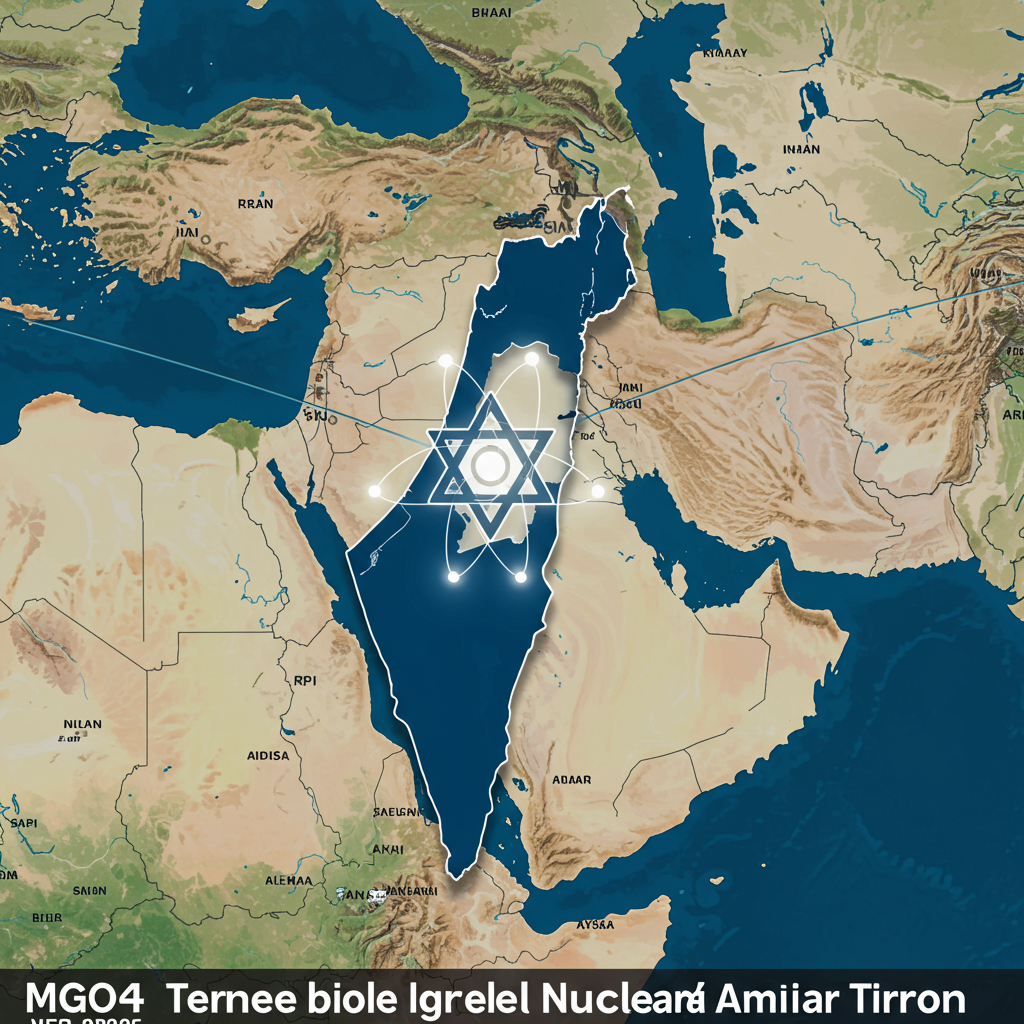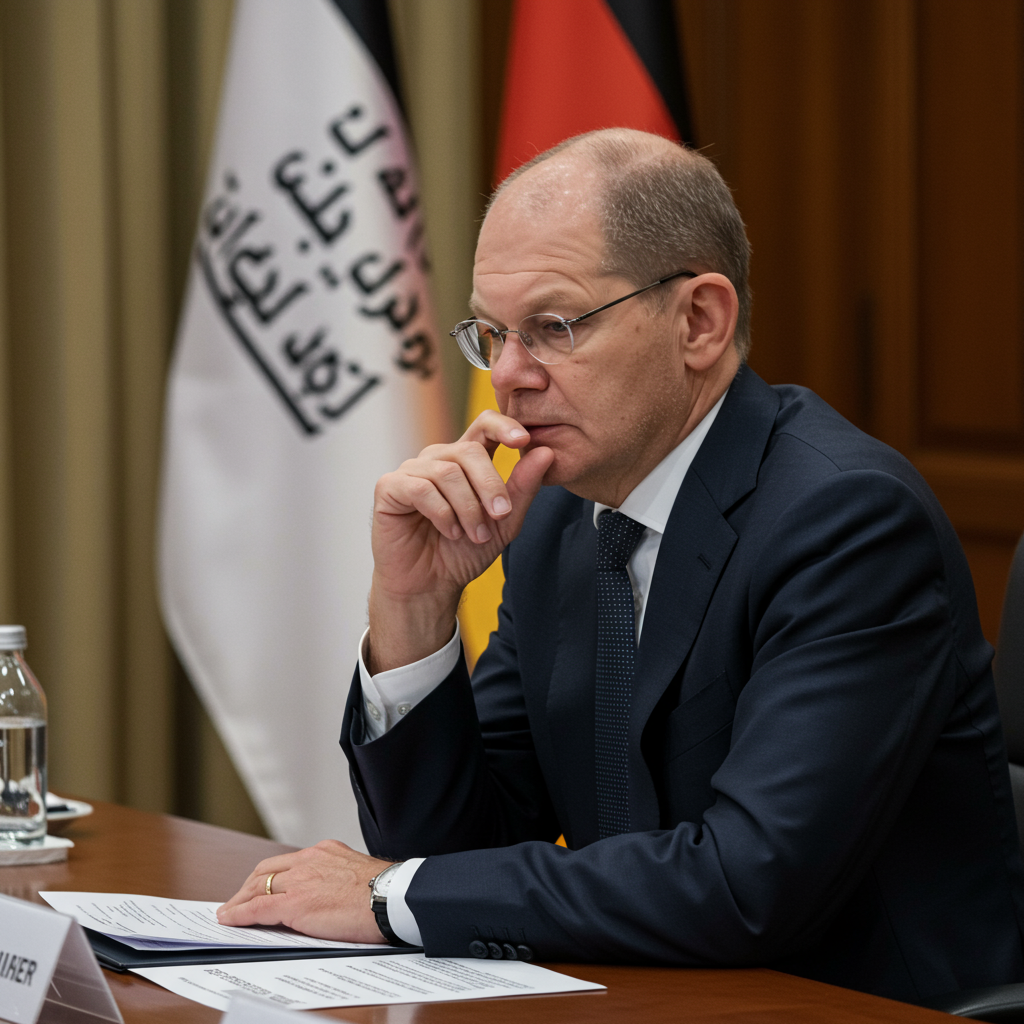Recent heightened tensions in the Middle East, particularly surrounding Israeli strikes targeting Iran’s nuclear facilities, have brought renewed focus on a deeply sensitive and long-standing issue: Israel’s own presumed nuclear weapons program. Unlike Iran, which is a signatory to international non-proliferation treaties (despite facing scrutiny over compliance), Israel maintains a deliberate and closely guarded policy regarding its nuclear capabilities.
Strategic Ambiguity: The “Neither Confirm Nor Deny” Stance
Israel has never officially acknowledged or denied possessing nuclear weapons. This unique position, often termed “strategic ambiguity,” or more pointedly by experts, “implausible deniability,” allows the country to maintain deterrence without explicitly declaring its arsenal. This secrecy is seen by some analysts as a way to keep potential adversaries uncertain about the scope of Israel’s capabilities in a crisis scenario.
While this policy persists, international organizations like the Federation of American Scientists and the Stockholm International Peace Research Institute estimate Israel possesses around 90 nuclear warheads. Due to the intense secrecy, determining the precise extent of the program remains challenging. Estimates also suggest a significant stockpile of plutonium, potentially enough for hundreds of additional weapons.
A Believed Nuclear Triad
Beyond warhead counts, experts believe Israel possesses a sophisticated nuclear triad, meaning it has capabilities for delivery from air, sea, and land. This includes:
Air: US-made F-15, F-16, and F-35 aircraft believed capable of modification for nuclear bombs.
Sea: German-produced Dolphin-class submarines potentially armed with nuclear cruise missiles.
Land: The Jericho family of ballistic missiles, with reported ranges up to 4,000km, estimated to number around two dozen capable of carrying nuclear warheads.
International Standing and the NPT
Israel is a member of the International Atomic Energy Agency (IAEA) but is notable for being one of only a handful of countries, including North Korea, India, Pakistan, and South Sudan, that are not signatories to the Treaty on the Non-Proliferation of Nuclear Weapons (NPT).
The NPT, established in 1970, aims to prevent the spread of nuclear weapons and promote peaceful nuclear energy. It recognizes only five states (United States, Britain, China, France, and Russia) as official nuclear powers. Signing the treaty would require Israel to dismantle any nuclear weapons it possesses and place its nuclear facilities under IAEA safeguards, something it has consistently refused to do. Critics argue this non-compliance is a significant obstacle to creating a weapons of mass destruction-free zone in the Middle East, a goal endorsed by the NPT signatories.
Historical Roots and Secret Development
The origins of Israel’s nuclear program reportedly trace back to the mid-to-late 1950s under Prime Minister David Ben Gurion, driven by a desire for ultimate security in the aftermath of the Holocaust and the state’s founding in 1948. The program centered around the Dimona complex in the Negev Desert.
Historical accounts and declassified documents reveal significant, initially secret, assistance from the French government in the late 1950s, helping build the Dimona reactor and providing technology for plutonium reprocessing—essential for weapons-grade material.
When the U.S. began questioning activities at Dimona in the early 1960s, Israel reportedly engaged in an elaborate deception campaign. Ben Gurion claimed it was solely a “research reactor.” During U.S. inspections between 1961 and 1969, Israel allegedly concealed an underground separation plant crucial for weapons production using false walls and camouflage. Despite the deception, progress was rapid: the underground plant was complete by 1965, weapons-grade plutonium produced by 1966, and a nuclear weapon assembled before the 1967 Middle East war.
By the late 1960s, the U.S. was reportedly aware of Dimona’s true purpose. A purported secret agreement in 1969 between President Nixon and Prime Minister Golda Meir is believed to underpin the U.S. policy of not pressing Israel on its nuclear program as long as the deliberate obscurity is maintained.
The Vanunu Revelation
Israel’s policy of ambiguity faced its most significant public challenge in 1986 when Mordechai Vanunu, a former technician at the Dimona facility, disclosed details and photographs of the reactor to Britain’s Sunday Times newspaper. His revelations undermined the government’s long-standing secrecy.
Vanunu was subsequently abducted by Israeli agents, convicted of treason, and served 18 years in prison, much of it in solitary confinement. He stated his motive was to report on the program and “save Israel from a new Holocaust,” expressing no regret despite the heavy price paid.
Israel’s Deterrence Doctrine
Despite the official ambiguity, Israel’s strategic thinking implicitly relies on its perceived nuclear capability. While leaders state they will “not be the first to introduce nuclear weapons into the Near East,” the precise meaning of “introduction” is deliberately kept vague.
This deterrence strategy is sometimes referred to as the “Samson Option” or “Last Resort” doctrine. It suggests Israel would consider using nuclear retaliation only in the most extreme scenarios, potentially in response to an existential threat that risks the nation’s complete destruction, even from a non-nuclear power. This option is believed to have been considered during the intense fighting of the 1973 Middle East war.
Current Tensions and Future Risks
The recent exchange of strikes between Israel and Iran, with Israel justifying its actions by citing the need to prevent Iran from developing a nuclear weapon, underscores the volatile interplay of nuclear concerns in the region. While Israel points to Iran’s increasing uranium enrichment (reportedly reaching 60% purity, near weapons grade and potentially sufficient for multiple bombs according to IAEA concerns) and breaches of non-proliferation obligations, the focus is often deflected from its own unacknowledged arsenal.
Experts warn that Israel’s military actions aimed at Iran’s program could, paradoxically, fuel Iran’s nuclear ambitions. Some suggest such attacks might lead Tehran to conclude it needs* greater nuclear capabilities for deterrence against future strikes, potentially steering the region onto a more dangerous path of escalation.
Ultimately, Israel’s unique position outside the NPT, its long-standing policy of nuclear ambiguity, and its believed capabilities remain central, albeit often unspoken, factors in the complex and high-stakes security dynamics of the Middle East.




